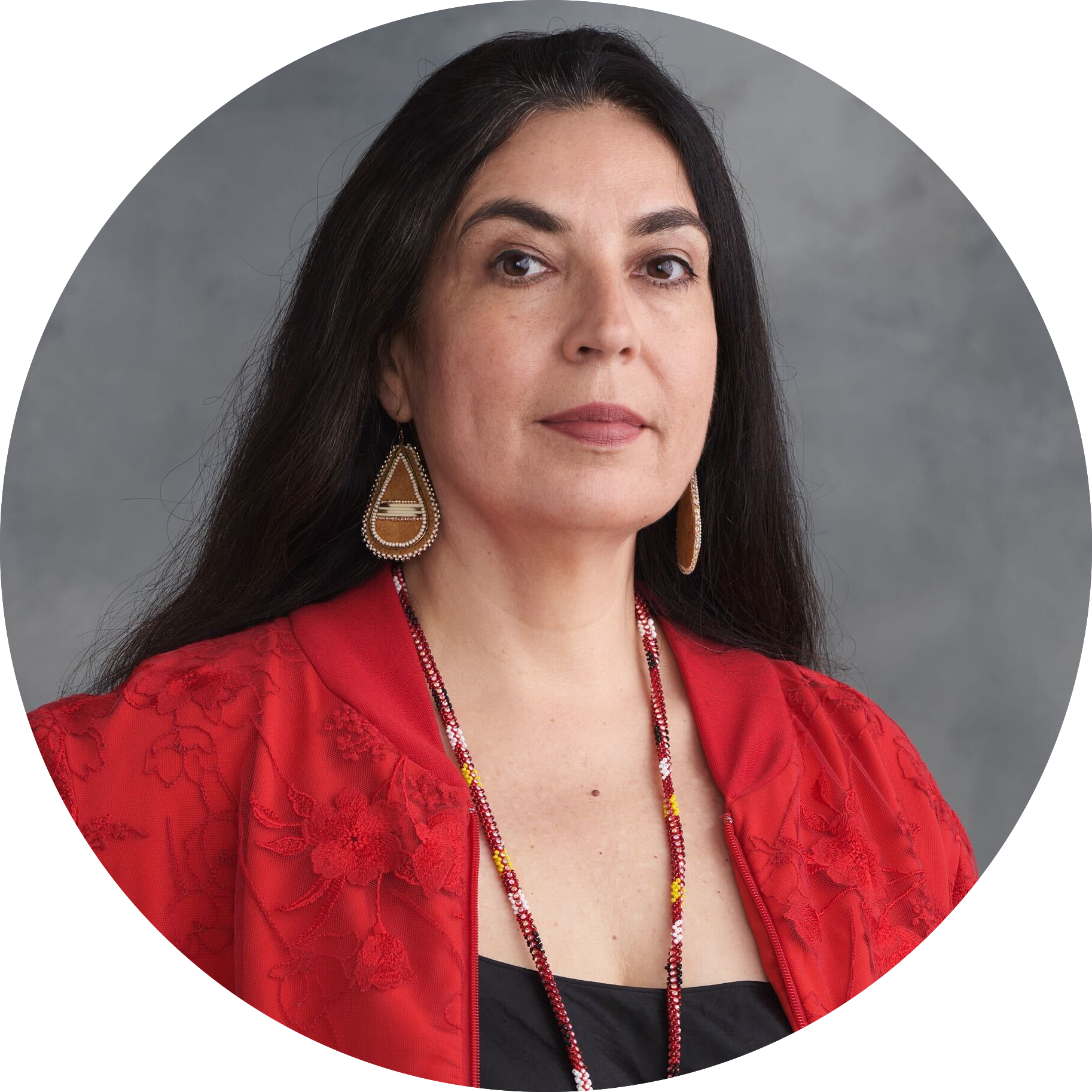
The root of the problem in northern Ontario
This story about a lawsuit involving First Nations in northern Ontario has deep roots — in...
Get the inside scoop on The Narwhal’s environment and climate reporting by signing up for our free newsletter.
Photojournalists provide us an essential glimpse into lives outside of our own.
In a time of generative AI and a deluge of images of anything we can imagine, photojournalists ground us firmly in reality. They are by nature always out in communities — there is no work-from-home option for a photojournalism assignment — and documenting real peoples’ lived experiences.
Here, we asked four Prairies-based photojournalists to tell us a bit about their favourite photo (or photos) from 2024 assignments with The Narwhal. Their choices span the Prairies — and highlight some of our best on-the-ground work of the year.
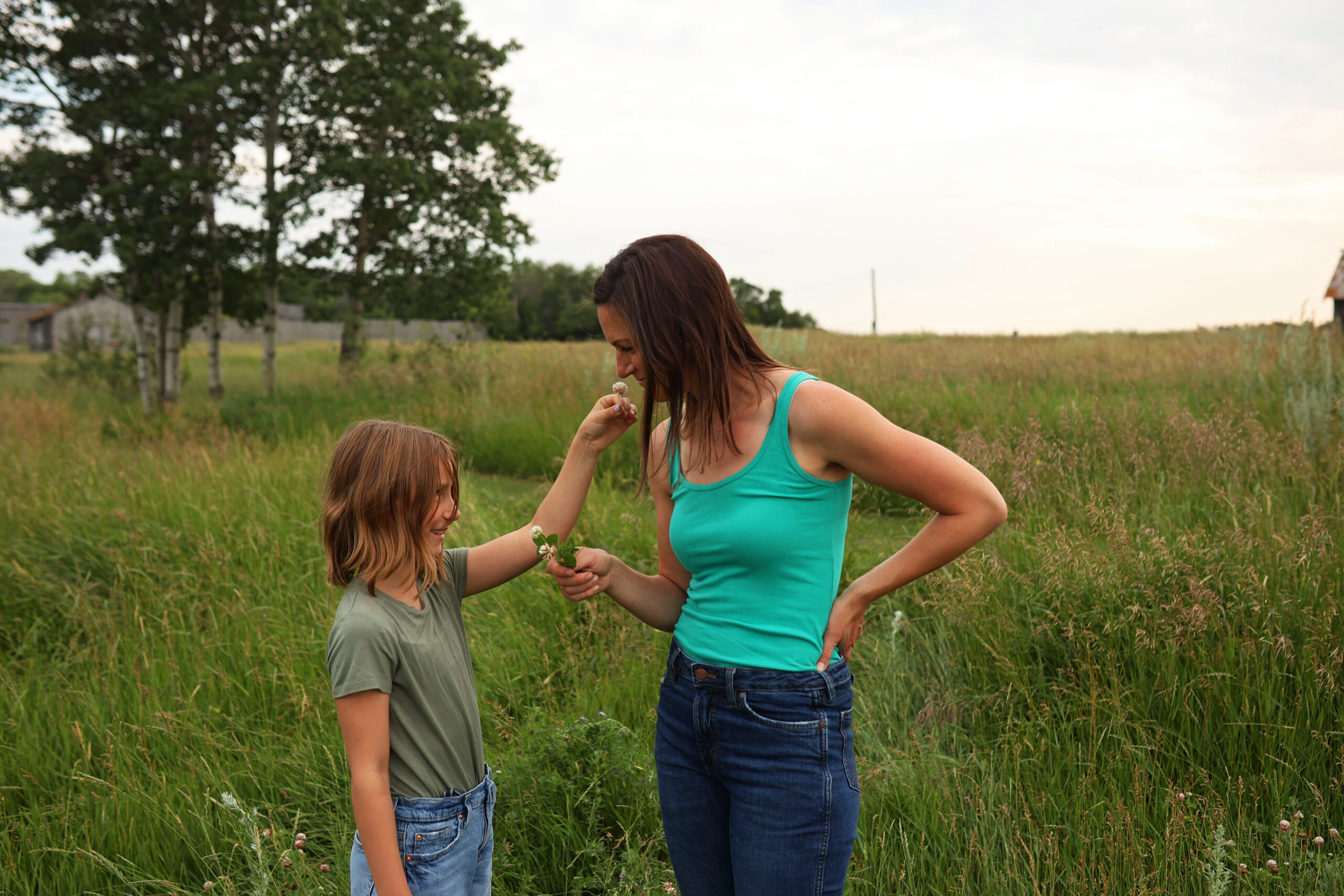
Being a rural photographer, farming and agriculture make up a lot of my work, but I only had one evening to meet with farmer Jocelyn Velestuk in eastern Saskatchewan. Jocelyn and her family were very gracious, taking me all over their farm. I love this image of Brooke Velestuk offering clover for her mom to smell. It’s a brief and tender moment.
— Tim Smith, Brandon
I grew up around Blackfoot culture, teachings and protocol, so to be granted not only access but permission to photograph a site as sacred as a buffalo jump was an honour for me. Similarly, the act of putting up (and taking down) a tipi is an act the community participates in. While the lighting was perfect, the fact we were asked to help take it down with them showed a level of trust and acceptance — once again an honour.
I love this photo of Kyrus Bruised Head, as his relaxed appearance (despite the bloody visual) is a great indicator of the level of comfort and reverence the Blackfoot have to the bison, even in death.
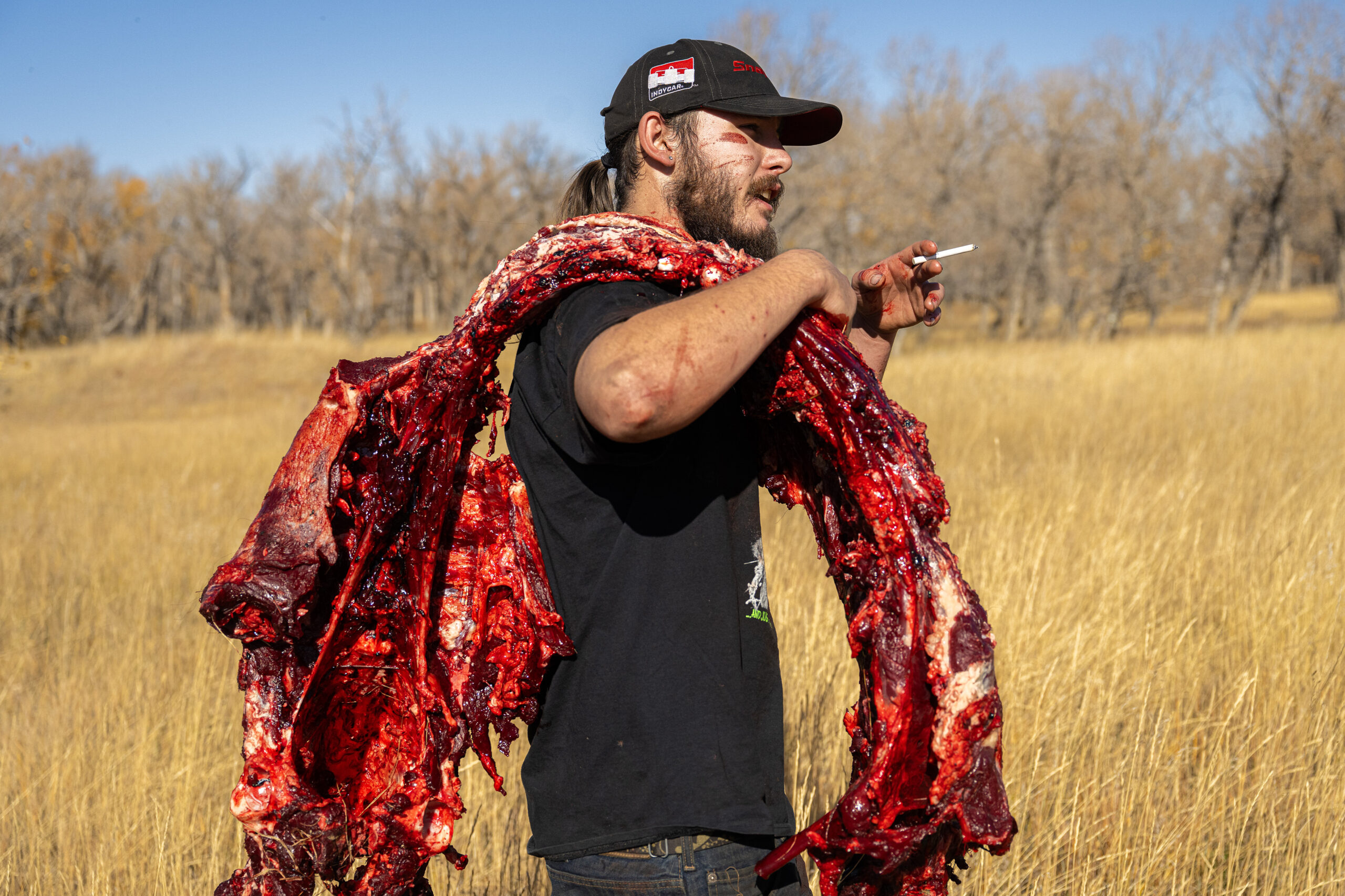
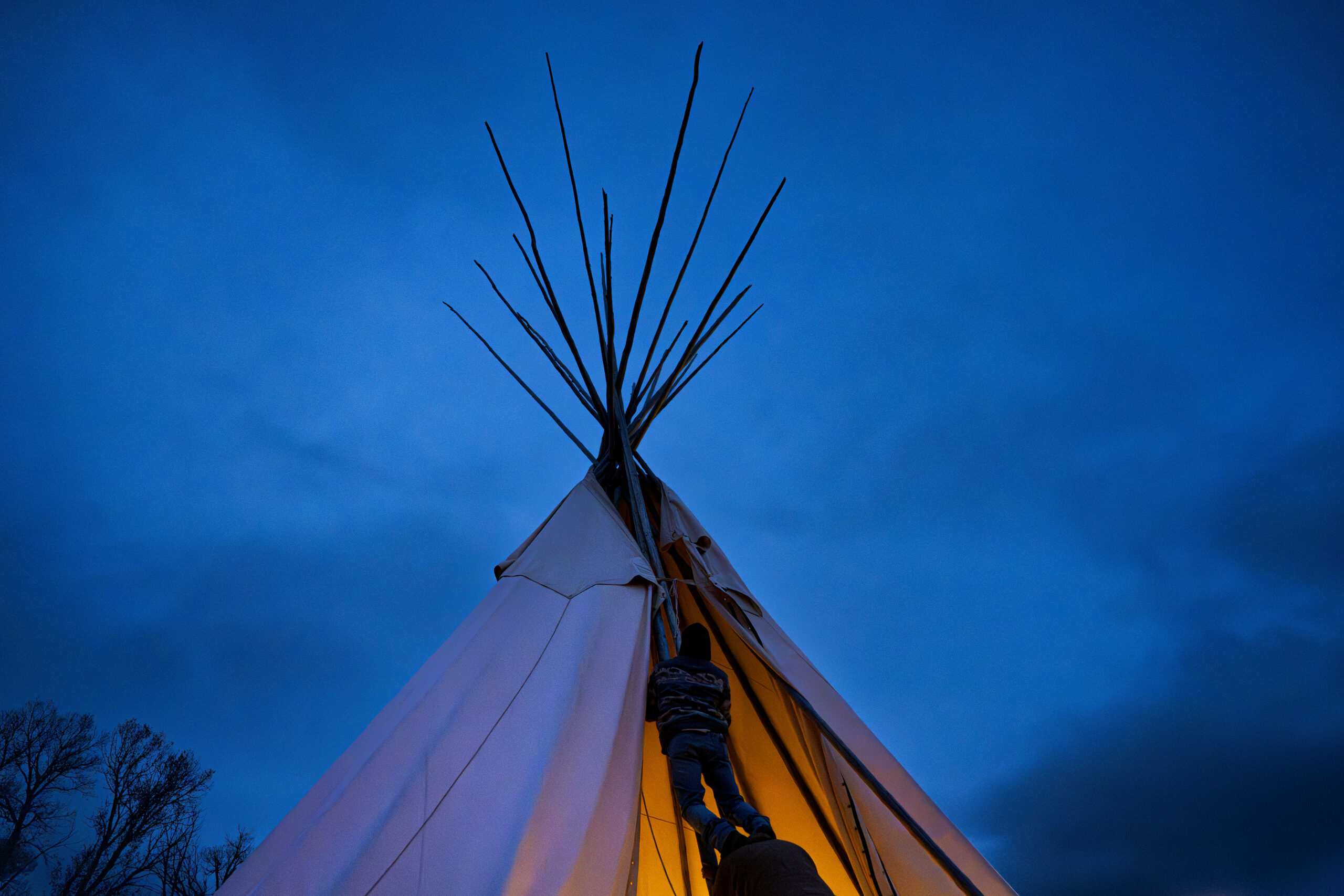
These images are a highlight of my career, not just for how happy I am with the technical aspects but also because they represent the depth of respect given to produce the images.
— Gavin John, Calgary
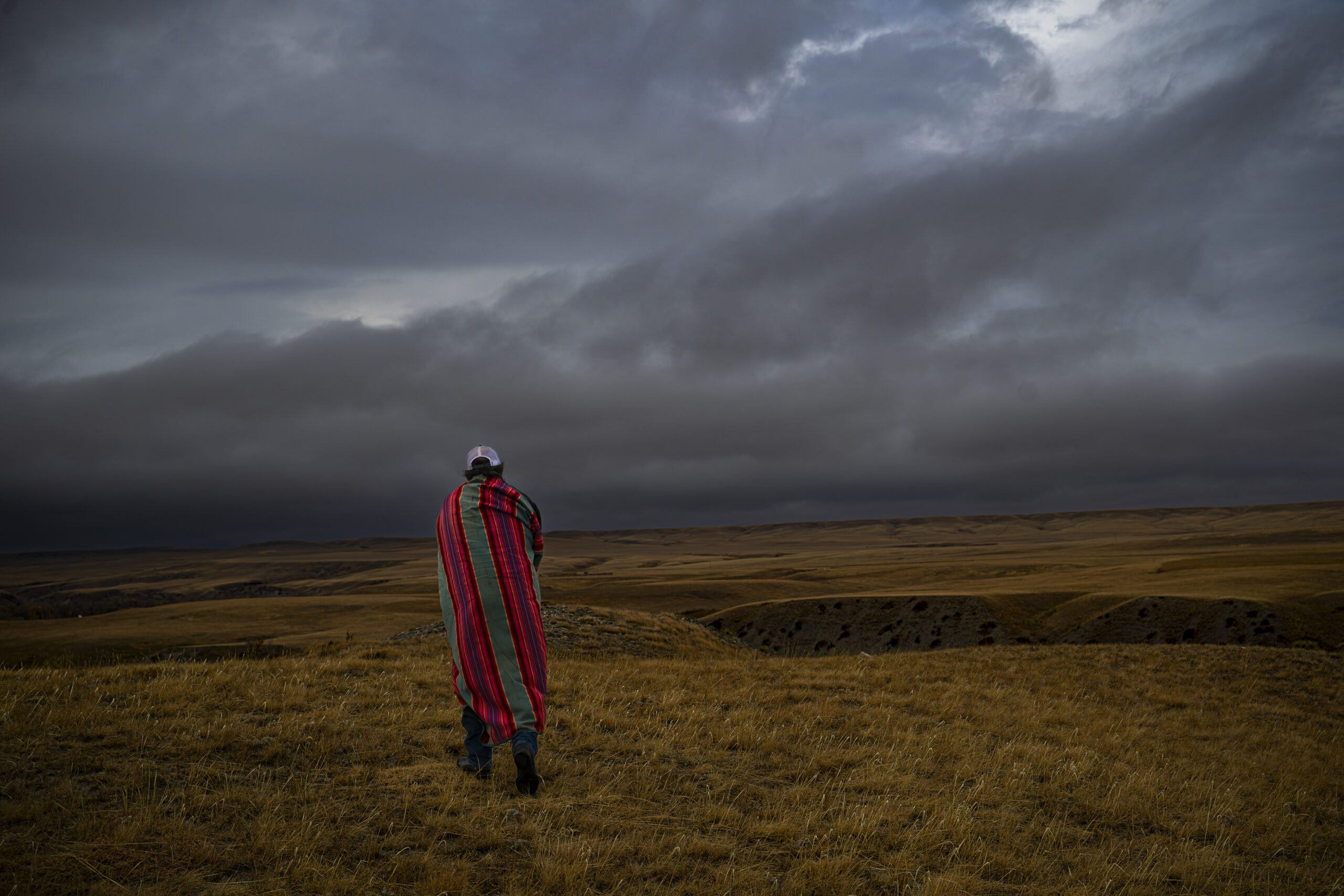
The morning was blue-cold with driving snow — more than a foot had accumulated overnight in Fort McMurray, Alta. But, with a full tank, we set out on the ice road for Fort Chipewyan. I was going to talk to residents about what it’s like to live with questions about the safety of their water. I didn’t know then how impactful the visit would be.
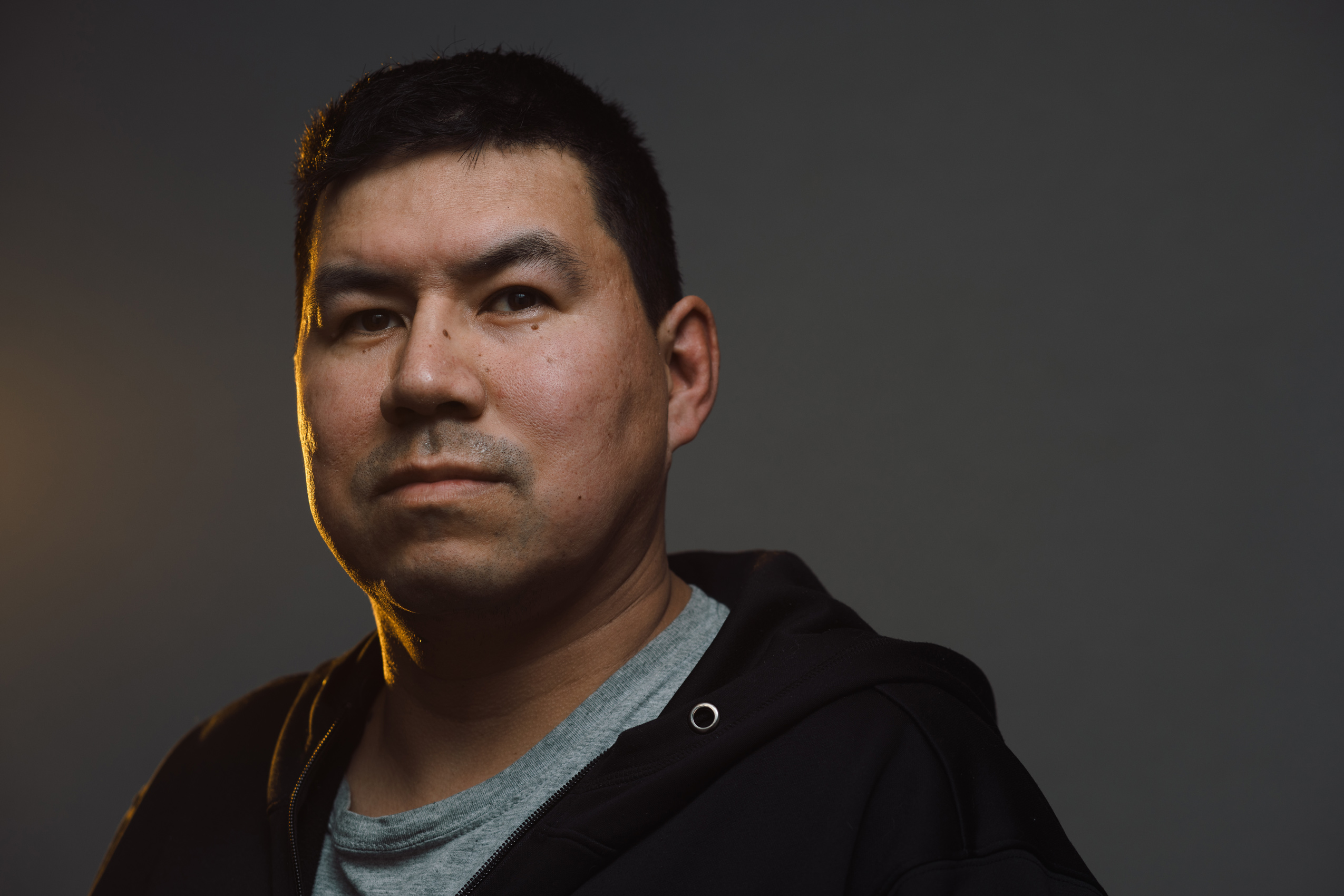
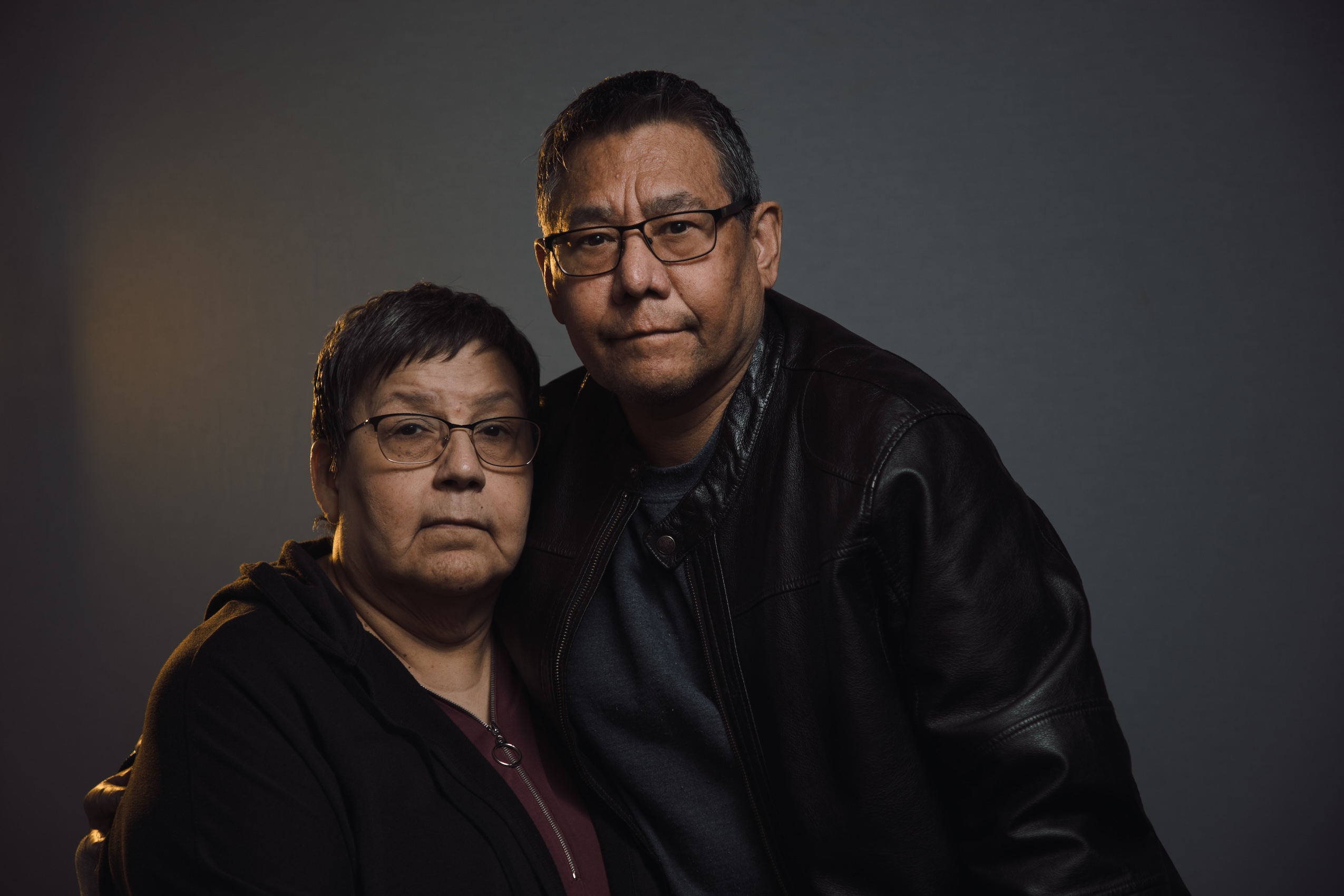
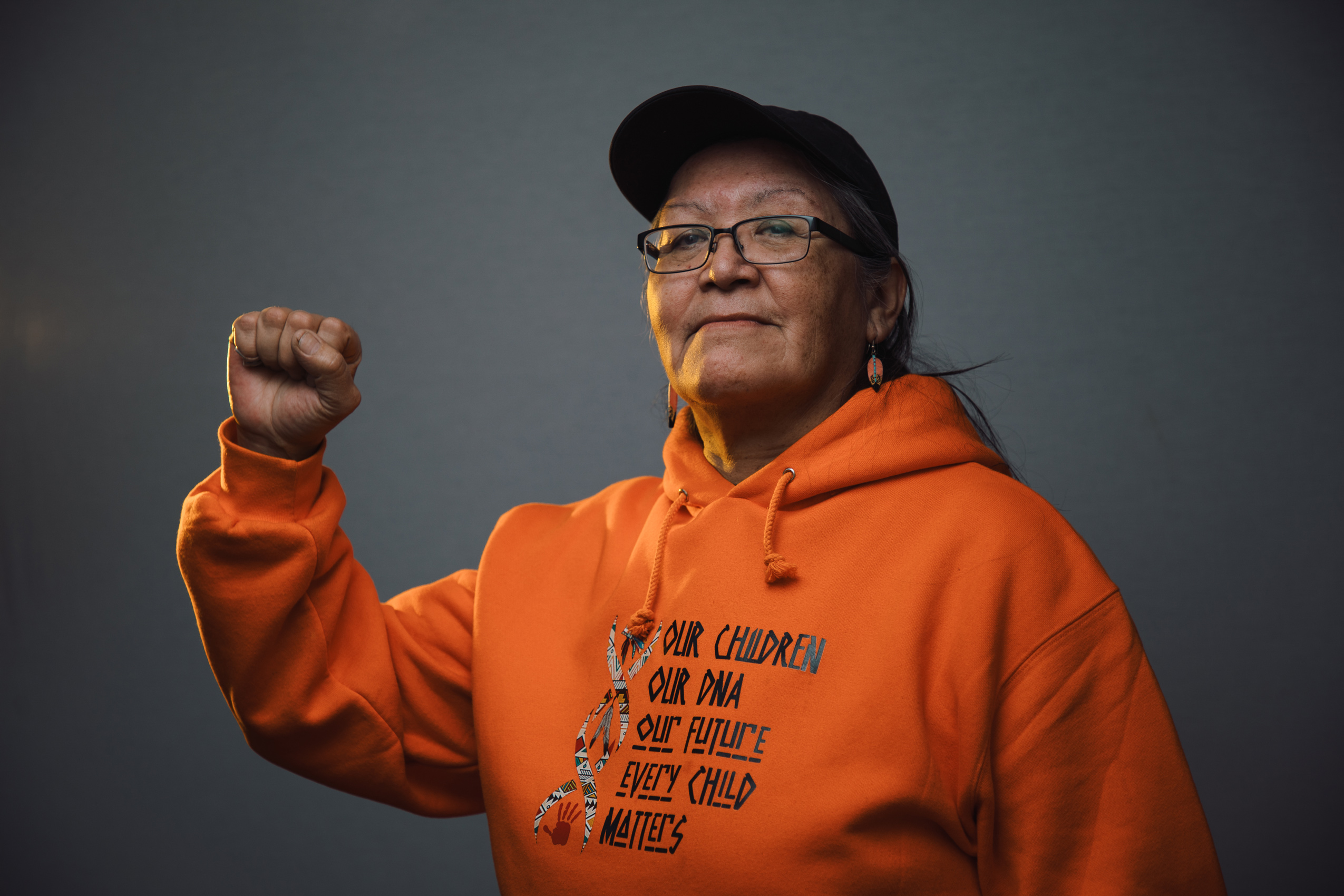
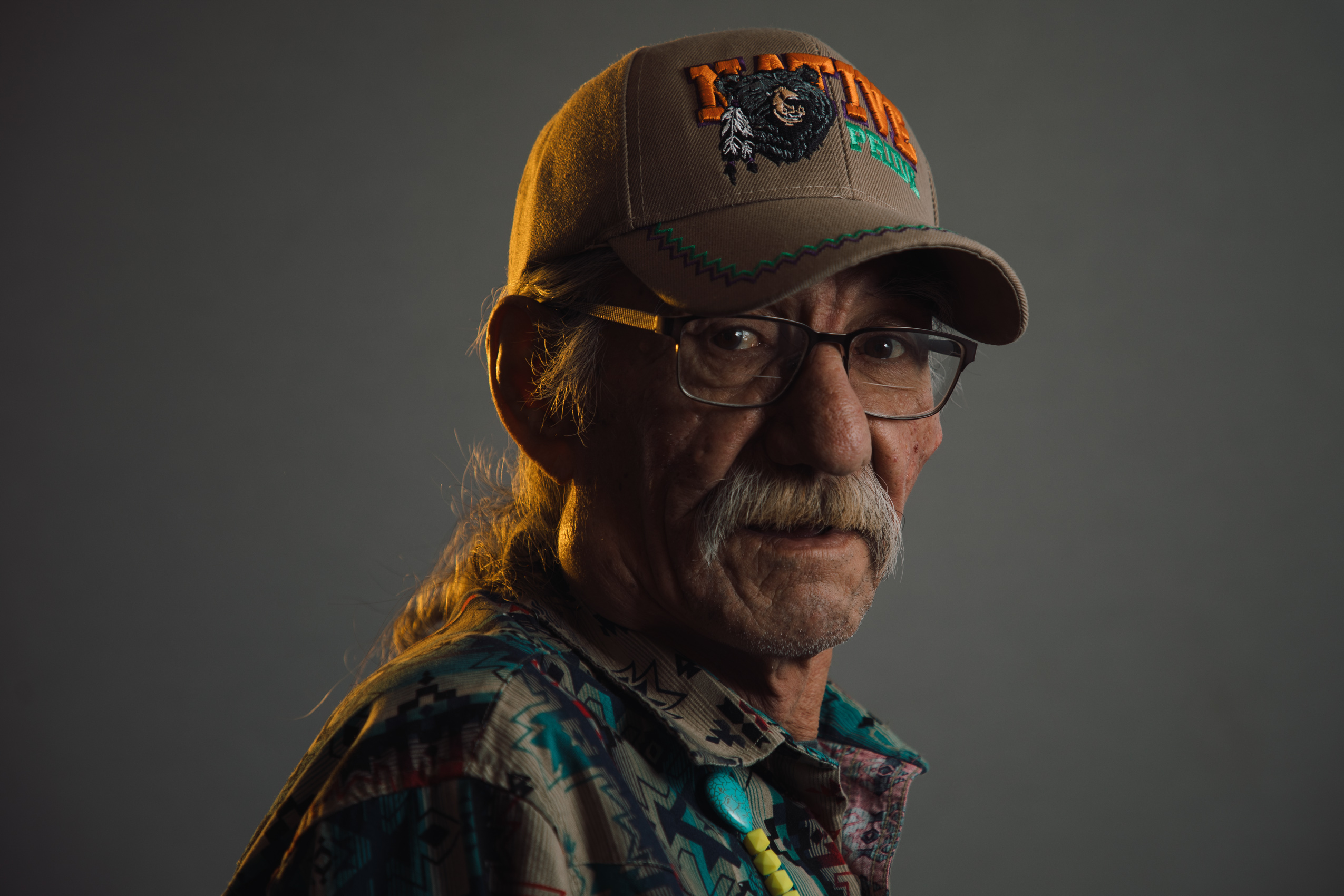
I invited people to speak to me in a local house, where I had set up my lights and backdrop. Among my visitors was Jason, who longs to pass culture onto his children, Jean, whose cabin is closest to the 2022 Kearl Imperial Oil spill, and Elder Roy, who spoke of hope. Claire and Kenneth shared their worries in between her cancer treatments. Sadly, Claire died this past summer.
With each visit, there was a quiet space to listen and capture their portrait. Each story is a moment of connection to the deeply human dependence on water — it is both personal and universal.
— Amber Bracken, Edmonton
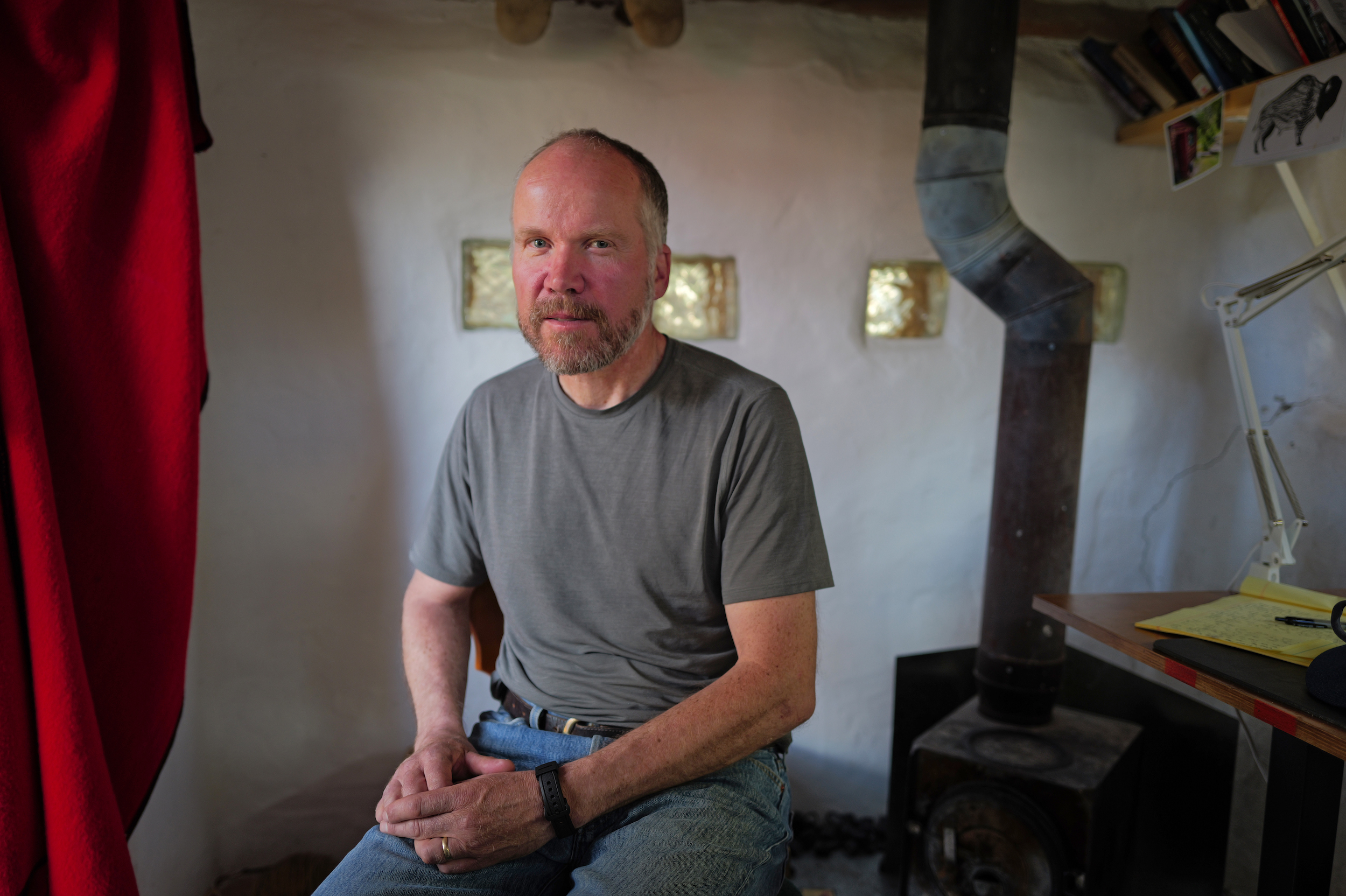
It was an honour to photograph wildlife biologist Karsten Heuer — a pioneer in large landscape-scale conservation — surrounded by personal artifacts in his tiny studio in the backyard of his home in Canmore, Alta.
We walked down to the nearby river, enjoying a wide-ranging conversation about life and the importance of family. Our frank exchange was all the more powerful given that Karsten, afflicted by a neurological condition called multiple system atrophy, died by MAID (medical assistance in dying) less than six months later.
— Leah Hennel, Calgary
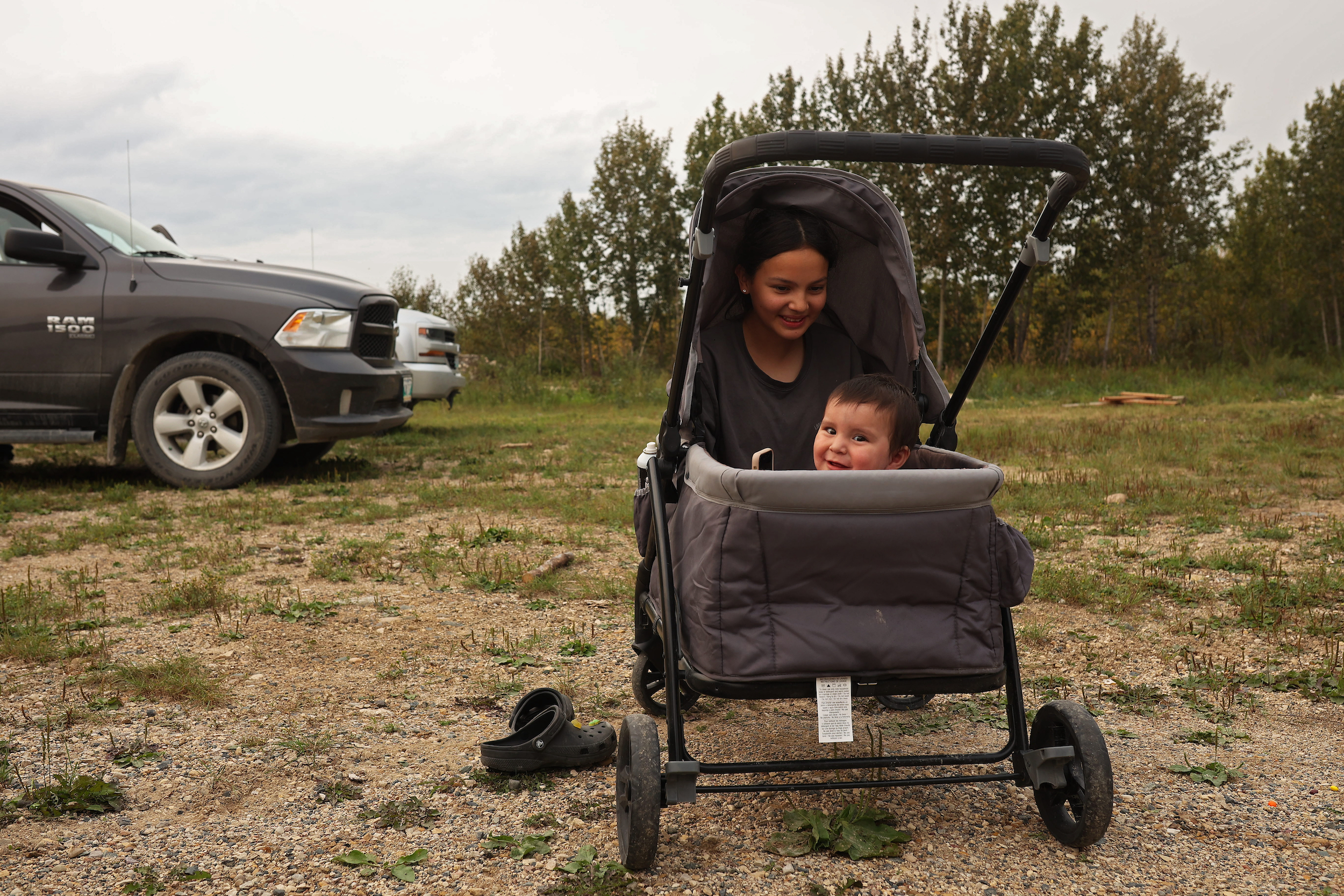
In late August, Prairies bureau chief Sharon Riley asked if I was interested in a short-notice trip to document a gathering at Fox Lake’s culture camp north of Gillam, Man. I went through my usual panic and over-thinking leading up to my flight with reporter Julia-Simone Rutgers. The moment we stepped off the plane on the gravel runway at Gillam Airport I knew the next four days would be amazing.
This photo from the camp is of twelve-year-old Memry Anderson taking care of her ten-month-old sister, Miley Anderson, in a stroller, while their mom chopped wood. I love moments like this — while maybe not being key to the overall story, they show connections we can all relate to.
— Tim Smith, Brandon
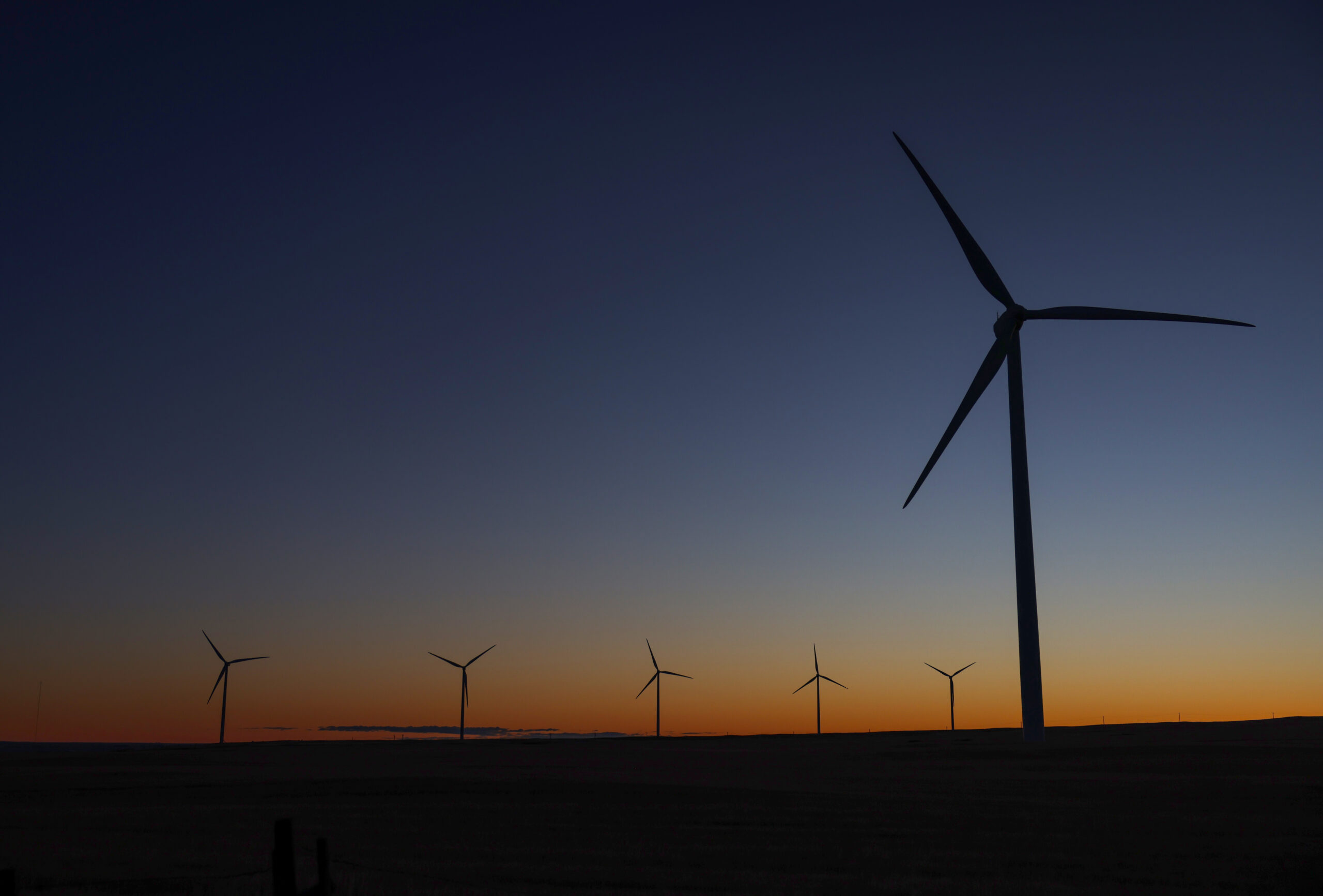
An early-morning drive near Pincher Creek, Alta., with my schnoodle Ozzy as co-pilot, provided ideal conditions for documenting the wind turbines in the foothills of the Rocky Mountains. As always, I’m stunned by the number of wind turbines and by the sheer size of them.
The weather that fall day was a little chilly and a lot windy — par for the course in that region.
— Leah Hennel, Calgary
